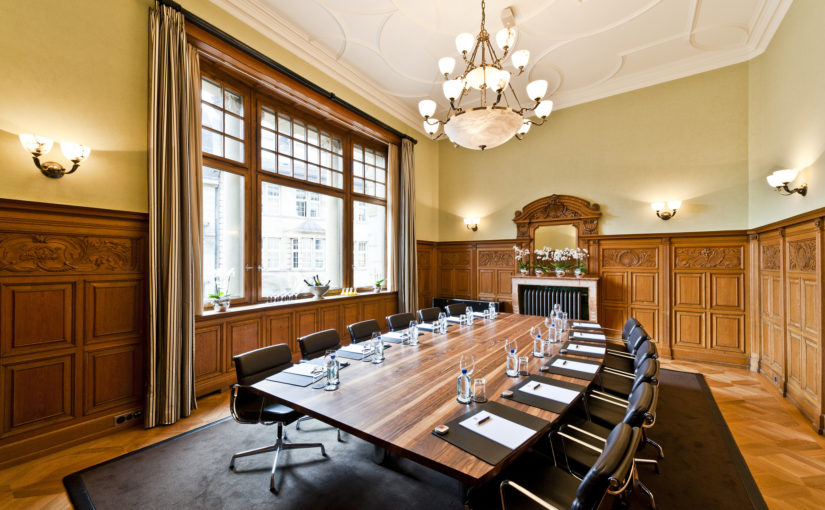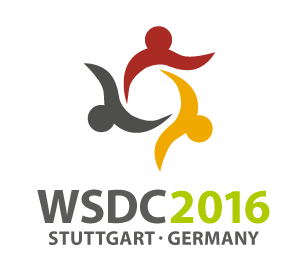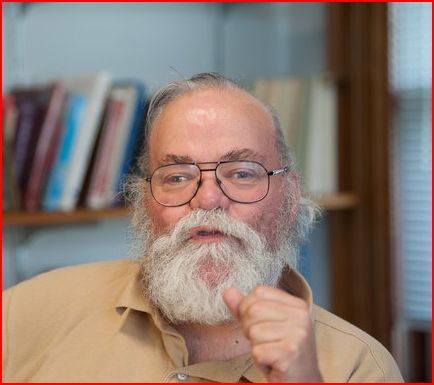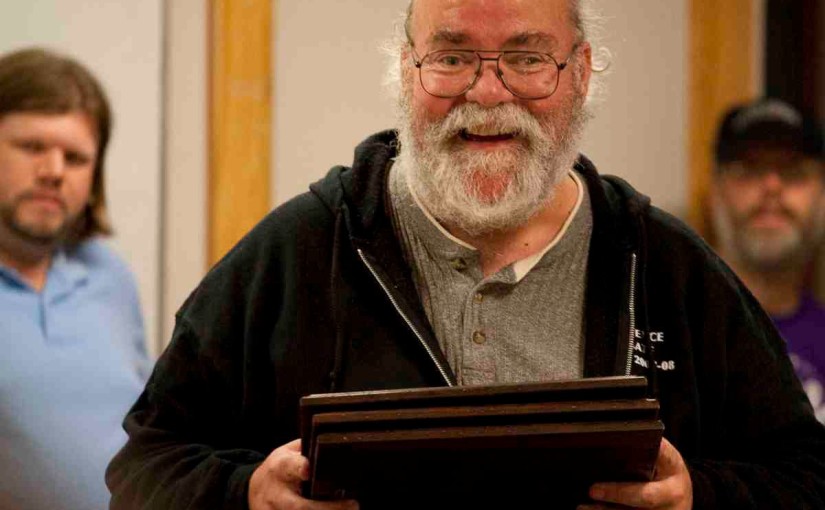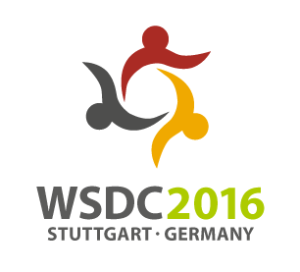Background
From 2002 to 2007, the WSDC Executive Committee tried but failed to develop a fundraising arm, through a volunteer Finance Committee. It was felt that the goal was right but the execution needed a proper strategy and structure.
In 2008, 29 countries voted (unanimously) in favour of the legal incorporation of WSDC as a company registered in the United Kingdom (under the law of England & Wales). The UK was chosen as being the country with the highest concentration of WSDC alumni from many countries who, it was hoped, would help the new company to develop; incorporation in the UK is relatively straightforward; and also a base in London offered easy access to potential corporate donors. The company was incorporated on 6 August 2008.
The initial goal was to develop WSDC as a business for the first time, over and above – not instead of – the activities of the Executive Committee. It hoped to include the energy and skills of alumni who had gone on to professional careers but may no longer actively participate in tournaments.
As Andrea Coomber, the first Chair of the Board of Directors, emailed to the community in October 2010:
When our community decided to create an incorporated body to advance these objectives it did so not to create a bureaucracy that would control all the activities of the WSDC. It is important to note that WSDC Ltd. plays no role in the annual organization of the championships, has no interest in the rules of debate, the management of the tournament, the eligibility of nations, etc. Under the Rules the Council and the Executive address these. While it is very early days, ultimately the WSDC Ltd. will act as a business engine for financing, expanding and profiling schools’ debating internationally.
Read more about the history of WSDC Ltd.
The goals of WSDC Ltd
The evolving goals of the company and its Board of Directors have included the following, categorised according to success levels:
Successful
- To establish a membership association;
- (After a vote of members in 2011) to levy membership fees in order to raise an annual income for the company;
- To publish information about WSDC on its website
- To grow an online community, in partnership with the Executive, around its mailing list (1100+ subscribers), Twitter feed (1400+ followers) and Facebook page (4500+ followers)
- To set up a bank account (HSBC in the UK)
- To get sponsorship worth £3000/year for costs of its online activities including website hosting, development and membership platform
Limited success
- To encourage membership amongst tournament alumni;
- To raise funds through membership fees (after a vote of members in 2011);
- To connect alumni and share memories and opportunities.
Unsuccessful, or not attempted
- To qualify for charitable status in the UK (£5000 per year for full qualification (see below));
- To improve consistency and quality control of tournaments through establishment of a contract to be signed with hosts;
- To raise additional funding through a small percentage of registration fees;
- To raise significant funding through corporate sponsorship;
- To develop & implement a central registration facility for teams and adjudicators, to be be shared by future hosts (contingent on establishing a hosting contract);
- To help new countries to attend;
- To help existing countries to trial more students for their teams;
- To ease the financial burden on future hosts;
- To lower registration fees for all participants;
- To develop training materials for new teams;
- To appoint and continue a Competitors’ Advisory Board to involve high school students in the organisational structure (never appointed);
- To appoint and maintain a Development Committee of alumni, responsible for the day-to-day management of the company (appointed but disbanded);
- To take out insurance for Directors and other company officials who may be liable for tournament-related lawsuits;
- To trademark the WSDC name and/or logo.
Why has the company not achieved more?
There are many reasons but perhaps the following are most significant.
- The volunteer model; it is easier to get energy and action from unpaid volunteers over shorter periods and on focused tasks (e.g. tournaments, which create a clear agenda) than all year round on more general activities;
- Lack of communication to the community (after the initial popular votes on incorporation and membership fees), to explain the company’s goals and activities, and encourage a wider group of people to get involved;
- Failure to energise the hoped-for base of alumni in the UK;
- A confusion throughout the community about the structure of the company and the division of responsibilities between Board and Executive – a confusion shared, at times, by Board and Executive members too;
- Failure to properly market the benefits of membership.
The review process
In March 2015, the Board of Directors held an online forum inviting members of the community (paid members and non-members) to give their views on the future of WSDC Ltd, the company. In May 2015, a Review Panel was formed to look into recommendations, with the following volunteers:
- Tracey-Ann Lee – Canada
- Menno Schellekens – The Netherlands
- Andrej Schulcz – Slovakia
- Cindi Timmons – USA
- Mark Webber – Mexico
The Panel interviewed several alumni and former Directors and committee members of WSDC, and presented a report to the Board in September 2015.
In September/October 2015, the Board invited the Executive to nominate three of its members to join the Board as appointed Directors, to serve until the next elections (at which, should they take place and the new Directors be willing, they would be required to stand for election). Mark Gabriel (Exec Chair), Taimur Bandey (Exec Vice-Chair), and Cindi Timmons (Review Panel representative and Exec member) were duly appointed and registered with Companies House in the UK, to join existing Directors Christopher Erskine (Chair), Mehvesh Mumtaz Ahmed, Daragh Grant and Trevor Sather.
Since then the new Board has been discussing the recommendation of the Review Panel and other proposals for the future of WSDC.
Proposals for the future
None of the people involved in various conversations to date seem to disagree with the goals of the WSDC Ltd project; it is the execution that has been the problem. This raises the question of whether the goals should be abandoned, or attempted again with a different execution.
Rather than make one single proposal to the membership, the Board has decided to outline three different strategies, and invite the membership to discuss and endorse one in principle at the Annual General Meeting (AGM) in 2015. A formal proposal can then be worded and circulated, and then voted on at an Extraordinary General Meeting (EGM) after the appropriate notice period.
All three proposals would mean the company still exists after the vote, but for potentially very different time periods. In each case the new Board would be tasked with a specific endorsed strategy.
Option 1: Wind up the current organization
(Recommended by Review Panel)
This strategy would see the current attempt at legal status abandoned, and the existing company wound up. The Memorandum & Articles and bye laws would cease to exist.
The WSDC organisation would return roughly to where it was pre-2008, likely with an elected Executive and its working groups; but the Tournament Committee would determine the exact structure and new legislation for the future in a process organised by the Tournament Executive Committee.
Existing funds of the company would be used to cover any costs of winding up, and the remainder donated (as allowed by UK law) to a similar organisation. (Suggestions for such an organisation are welcome and one would be proposed for membership approval at an EGM.)
The digital assets of the company (website, mailing lists x 2, Twitter feed, Facebook group, LinkedIn group) – and the costs of running them – would be left to the Executive.
As part of any winding up process, a new draft of the rules governing the World Schools Debating Championships would need to be drafted. The Board proposes that this body of rules would be drafted and made available for the members to vote on at the same EGM at which WSDC Ltd. would be wound up.
Acknowledging the benefits that successful incorporation would bring to the WSDC, the Review Committee suggested that the Executive and Tournament Committee might want to incorporate again in another form and in a less onerous jurisdiction in the future. We haven’t explored this option in detail, for two reasons: (a) if an independent, incorporated WSDC company is still held to be a good idea, then the reasons for choosing the UK in the first place also still seem to be valid; and (b) if the problems with the project are to do with the volunteer model, lack of community buy-in and so on, then changing the country won’t help. As things stand, we haven’t heard a compelling reason to reincorporate in a new country.
Option 2: Keeping WSDC Ltd and fixing it
We haven’t discounted fixing the current model. If the goals of WSDC Ltd still find support, and if the current legal status shouldn’t be thrown away lightly (possibly creating a new burden of incorporation elsewhere), then some of the problems of their execution can be dealt with, as follows:
- Confusion between Board and Exec? – merge the two, or make the Exec the primary committee, who manage all aspects of tournaments, including fundraising (and are insured to do so); instead of the Board, volunteers could assist with online activities and alumni relations.
- Unable to raise £5000 per year to qualify as a charity in the UK? – actually, we don’t need to. The reasoning for this was to qualify for tax breaks so that corporate donors would be more likely to give funding; but there are ways for small charities to do this without the annual income.
- Don’t have personnel on the ground in the UK? – in fact there is no requirement to have any UK-based directors for a UK-based company, nor to have any UK-based signatories for a UK-based bank account.
- We can’t raise significant funding from membership fees? – instead we could ask for a small percentage of registration fees from each tournament to go to company activities; enough to pay for part-time professional fundraising assistance, for example. This fee could be levied in return for the provision of a centralized registration system to be used by all future hosts.
Option 3: Partnership with a third party
A final option is that WSDC Ltd. would be incorporated into an existing educational or debate-related non-profit that would be capable of ensuring that WSDC enjoyed the benefits of incorporation without depending on the current volunteer model. A partnership like this would need great thought and due diligence. If the principle is endorsed, WSDC Ltd would continue while the Board of Directors explored all available partnership options. Once the Board has vetted the available options, it would return the question of partnership to the members for their final approval.
To date, we have received one proposal for partnership, from the US-based National Speech & Debate Association. This proposal has not been subject to any negotiation, nor has the Board yet invited other third parties to submit partnership proposals. As such, the below should be taken as a first indication of the kinds of partnership possibilities that might be available to WSDC Ltd.
Partnership proposal from the National Speech & Debate Association
The National Speech & Debate Association (NSDA), US based 501 C3 nonprofit charity and membership organization (since 1925) has proposed a merger with WSDC. In the agreement, the NSDA would establish WSDC as a limited liability corporation in the United States, in which, NSDA would be the legal owner for a trial period of three-years. During this period the NSDA would establish WSDC with an approved framework which would allow existing WSDC leadership to retain all decision-making controls in governance and policy making.
The NSDA would serve as the administrative service provider for WSDC. In this role, NSDA, in collaboration with WSDC leadership, would build the appropriate organization infrastructure for success in the key goal areas of the original mandate of the WSDC charity. These areas would include financial development, marketing/public relations, legal compliance and trademarking, and insurance.
In an effort to ensure success of the new strategies, the NSDA would contribute a minimum of $15,000 USD in staffing and resource annually to the implementation of the the WSDC strategic goals as established by the WSDC leadership. Also, the NSDA would contribute a minimum of $5,000 USD annually to the current WSDC host. In addition, the NSDA would contribute up to $15,000 USD in additional resources, if fundraising efforts allowed.
At the end of the initial three-year period, WSDC members and the NSDA would be invited to consider making the arrangement permanent. Absent a nomination and 2/3 vote for a new partnership or new direction for WSDC, the existing arrangement with the NSDA would become permanent, with documents drafted to deal with potential severance between NSDA and WSDC in future.
Next steps
We look forward to contributions from members, old and new, in this AGM, and plenty of brand new ideas!
After what we hope will be a lively and inclusive discussion, registered members will be ask to vote, in principle, to authorize the board to pursue one of these three options for the future of WSDC Ltd.
